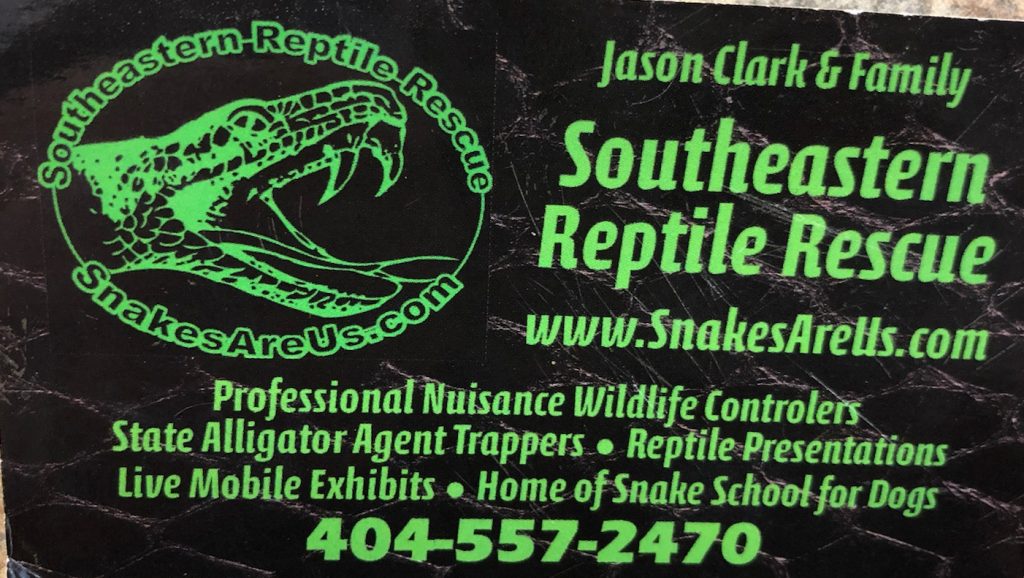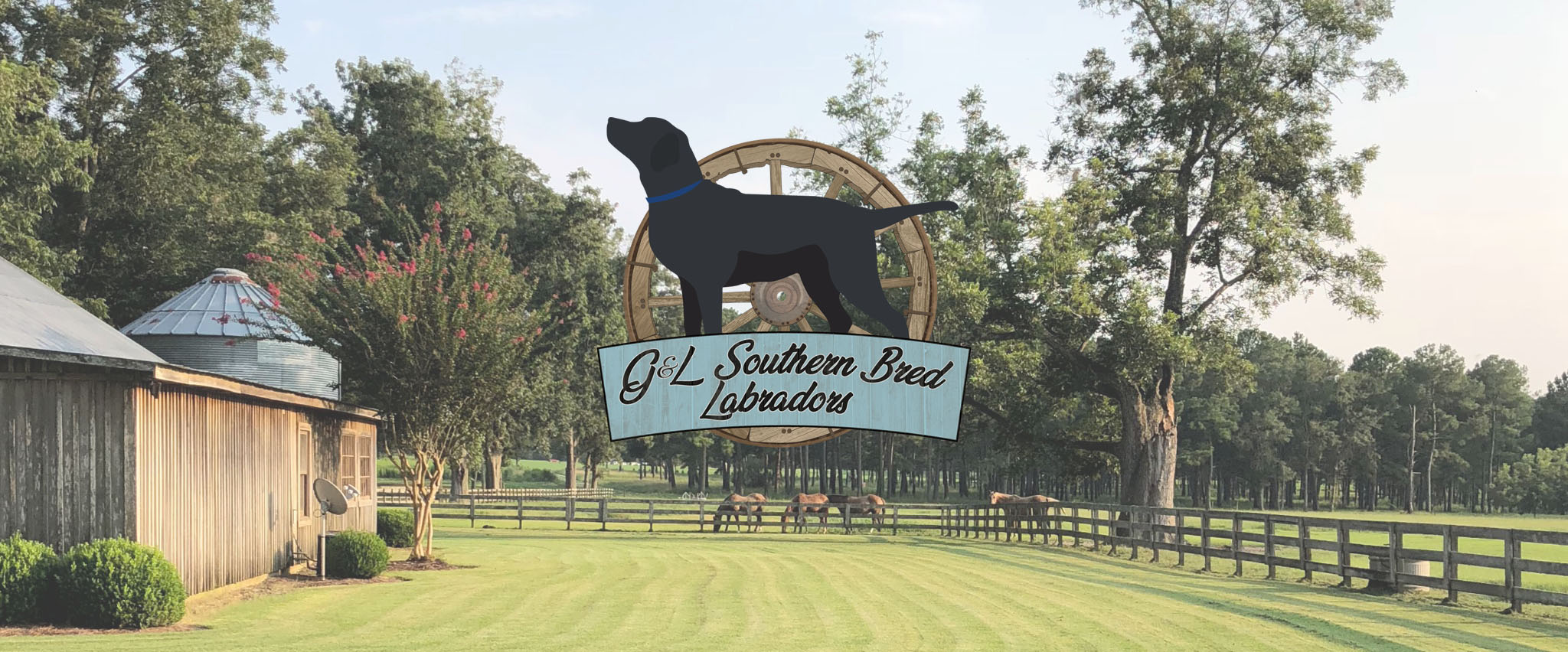Snake School at The DeLoach Farm
 Hosted by G&L Southern Bred Labradors LLC
Hosted by G&L Southern Bred Labradors LLC
On Tuesday April 30th, 2019, we held a Snake Aversion Training class for dogs. We had eight of our own and invited many friends who brought their dogs for the class.
Our dogs are family and we love and care for them deeply therefore we want to protect them from any potential harm. We decided to contact Mr. Jason Clark who is owner of Southeastern Reptile Rescue to come and train our dogs to avoid venomous snakes. Southeastern Reptile Rescue, a Georgia based organization that, among many other things, trains dogs to avoid venomous snakes.
Lindsey and I both knew this was necessary since our dogs are growing up on a farm where one could possibly happen upon a venomous snake.
Mr. Clark states most bites involve Georgia’s most common venomous snake, the copperhead. Every year there is a large number of dogs that do not survive the bite and the ones that do strangely were still not afraid and were just as curious about the next snake they encountered. This is easily explained by the bite itself. The physical penetration of fangs into flesh is usually a very minor event with hardly any pain. The excruciating pain is caused from the venom injected during the bite. The problem with snake bitten dogs is that the venom does not cause immediate pain. This may take several minutes after the dog has left the area with the snake. Surviving dogs then fail to associate this near death pain with the act of investigating and sniffing a snake. Thus, they repeat the whole process months later with another snake. This next bite, if you can afford the vet bills again, may not turn out as well as the first. Teaching a dog about snakes in the yard is just as important as teaching a child about cars in a parking lot. Without proper education, neither the dog nor the child knows what danger these apparent harmless objects can quickly and permanently cause.
Dogs are trained using an e-collar which produces a negative reinforcement by way of a mild, harmless electric stimulation. Mr. Clark as well as Lindsey and I are very conscious to the fact that use of e-collars are not favored by everyone. We do not use e-collars for any other training with our dogs but unfortunately as Mr. Clark states, he has not found any other safe and humane way that has proven to be effective in deterring dogs from the danger a snake can cause. Once you have seen a dog or person suffer the effects of a snake bite, the minor irritation an e-collar presents quickly fades as a reason to not have your dog trained.
Here at G&L Southern Bred Labradors we feel strongly that if one of our dogs happen upon a snake and visually sees it, he/she will immediately run the other way. We want our dogs to live a long and healthy life and we plan to do anything and everything possible to protect them.
